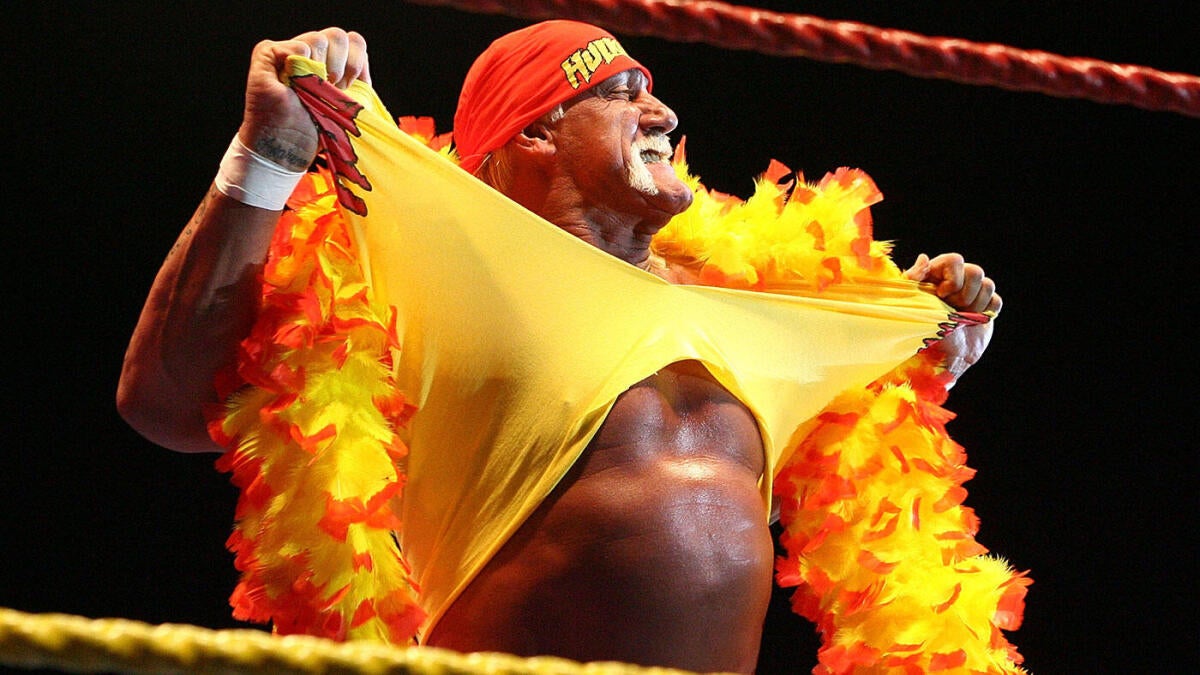The Passing of a Titan: A Look at Hulk Hogan’s Life and Legacy
Introduction
The wrestling world and beyond are in mourning following the passing of Terry Gene Bollea, universally known as Hulk Hogan. At 71, Hogan’s death on July 24, 2024, following a cardiac arrest at his Florida home, has left a void in the hearts of millions. More than a wrestler, Hogan was a cultural icon whose influence transcended the ring, shaping an entire era of professional wrestling and entertainment. This report explores the life, career, and enduring legacy of the man who embodied “Hulkamania.”
The Hulkamania Era: Rise of a Legend
Hulk Hogan’s journey to superstardom was nothing short of extraordinary. Born in Augusta, Georgia, in 1953, Terry Bollea’s path to wrestling greatness began in the late 1970s. However, it was the 1980s that cemented his status as a global phenomenon. Joining the World Wrestling Federation (WWF, now WWE), Hogan quickly became the face of the company, leading it to unprecedented heights.
Hogan’s character was a masterclass in showmanship. As a larger-than-life, muscle-bound hero, he preached values of hard work, training, and saying your prayers, resonating deeply with audiences, particularly children. His signature moves, such as the running leg drop and the “Hulk Up,” became iconic, symbolizing his indomitable spirit. Hogan’s ability to captivate audiences extended beyond the ring; his post-match interviews were theatrical performances that left fans on the edge of their seats.
One of Hogan’s most legendary moments came at WrestleMania III, where he body-slammed Andre the Giant in front of a record-breaking crowd. This feat remains one of the most iconic moments in wrestling history, showcasing Hogan’s physical prowess and his ability to draw massive crowds. His main event matches against rivals like “Macho Man” Randy Savage and The Ultimate Warrior are etched in the annals of wrestling lore. Hogan’s unparalleled ability to generate revenue and draw audiences solidified his place as the biggest star in professional wrestling.
Beyond the Ring: Hollywood and Beyond
Hogan’s popularity transcended the wrestling ring, propelling him into the world of Hollywood. He starred in several films, including “No Holds Barred,” “Suburban Commando,” and “Mr. Nanny.” While his acting career received mixed reviews, his presence on the big screen further amplified his celebrity status. Hogan’s charisma and larger-than-life persona made him a natural fit for the entertainment industry, even if his acting skills were not his strongest suit.
He also ventured into television, with appearances on shows like “The A-Team” and “Baywatch.” Later in his career, he starred in his own reality television show, “Hogan Knows Best,” which offered a glimpse into his family life. This show, while popular, also exposed some of the personal struggles Hogan faced, adding a layer of complexity to his public persona. “Hogan Knows Best” was a rare opportunity for fans to see the man behind the Hulkamania persona, revealing both his strengths and vulnerabilities.
Hogan’s ventures outside of wrestling demonstrated his ambition and desire to remain relevant in the entertainment industry. He understood the importance of branding and marketing, effectively leveraging his fame to explore opportunities beyond the squared circle. His ability to adapt and reinvent himself ensured that his influence extended far beyond the wrestling ring.
Controversies and Redemption: Navigating a Complex Legacy
Hogan’s career was not without its controversies. He faced scrutiny for his involvement in various business ventures that were not successful. More seriously, in 2015, he was embroiled in a scandal involving racially insensitive remarks, which led to his temporary removal from the WWE.
This incident tarnished his reputation and sparked a debate about his legacy. However, Hogan issued a public apology, acknowledging the hurt he caused and expressing remorse for his words. After a period of reflection and reconciliation, WWE reinstated him into the Hall of Fame in 2018. This period of controversy and redemption highlights the complexities of Hogan’s legacy. While his contributions to wrestling are undeniable, his actions outside the ring raised questions about his character and values. His willingness to acknowledge his mistakes and seek forgiveness ultimately allowed him to regain a measure of public trust.
The End of an Era: The World Mourns
The news of Hulk Hogan’s passing has sent shockwaves through the wrestling world and beyond. Tributes have poured in from fellow wrestlers, celebrities, and fans alike, all expressing their admiration for the man who helped define an era of professional wrestling.
His influence on the sport is immeasurable. He inspired countless aspiring wrestlers to pursue their dreams, and he helped to popularize wrestling on a global scale. His characters and storylines continue to be studied and emulated by wrestlers today. The outpouring of grief and remembrance underscores the profound impact Hogan had on so many people. He was more than just a wrestler; he was an icon, a symbol of American pop culture, and a source of entertainment for millions.
A Lasting Impression: Hulk Hogan’s Enduring Legacy
Hulk Hogan’s death marks the end of an era, but his legacy will endure. He will be remembered as the man who transformed professional wrestling from a niche sport into a mainstream phenomenon. His charisma, showmanship, and connection with his audience made him a global superstar.
While his career was marked by both triumphs and controversies, his impact on the world of entertainment is undeniable. He was a true original, a one-of-a-kind performer who captivated audiences with his larger-than-life persona and his unwavering belief in the power of “Hulkamania.” His name will forever be synonymous with professional wrestling, and his memory will continue to inspire generations of wrestlers and fans alike. The world may have lost Hulk Hogan, but Hulkamania will live on forever.











